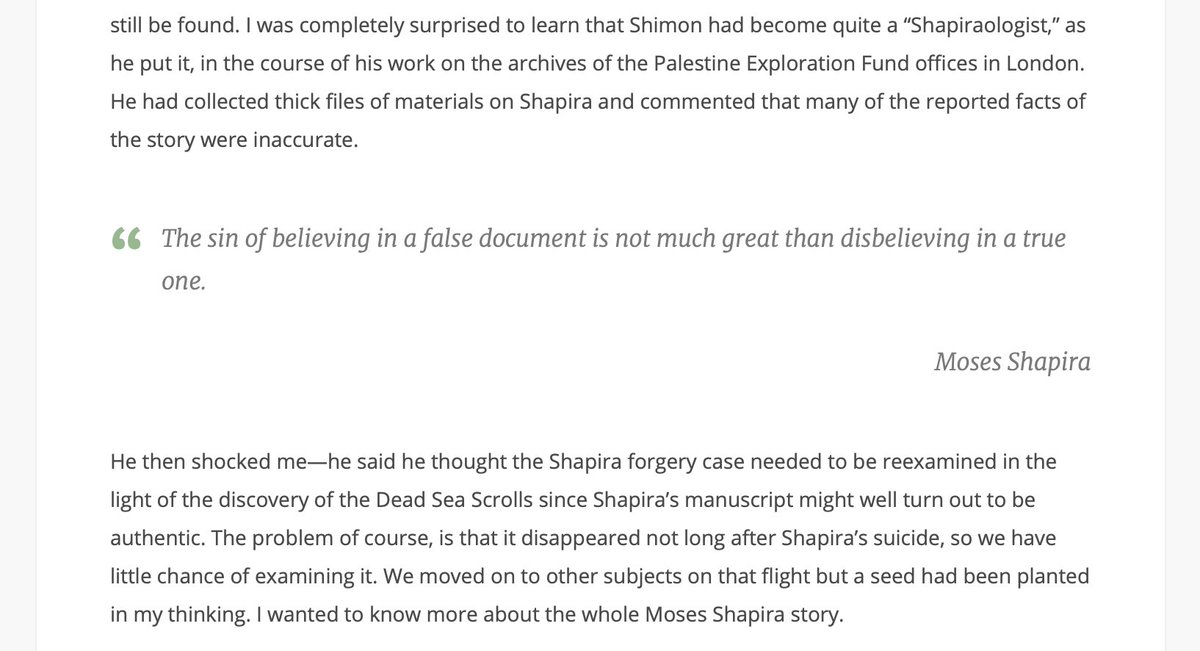
This is a really interesting review by Moses Finley of several books on archaeology, published in 1966.
Thanks @EirikWelo
nybooks.com/articles/1966/…
Thanks @EirikWelo
nybooks.com/articles/1966/…
Among those under review is Leo Deuel's Testaments of Time (1965), which started my interest in the review.
https://twitter.com/MichaelDPress/status/1380574344494071812
Much of the review is concerned with how archaeology is presented to the public.
Finley recognizes that, for all their flaws, 19th-century archaeologist-explorers had this down.
Finley recognizes that, for all their flaws, 19th-century archaeologist-explorers had this down.

As true today as it was 55 years ago: public interest in archaeology is connected to its romantic image, and our attempts to popularize our work have to face this basic fact. 

Finley charges (again, this concern is as timely in 2021 as it was in 1966) that specialist archaeologists have left the role of popularization largely for amateurs, for better or worse. 

This is certainly true: there *are* whole areas of human behavior that material remains cannot shed any light on, or at best just hint at, and for these we do need textual evidence. 

But it is just as true that, at least for most of human history (I mean here, as Finley, once writing appears), how most of humanity lived is ignored or dealt with in a brief and distorted way.
To even attempt to understand that, we need archaeology!
To even attempt to understand that, we need archaeology!

Meanwhile, Finley gives an amazing backhanded compliment of Leonard Woolley -- "a very great excavator"! 

• • •
Missing some Tweet in this thread? You can try to
force a refresh















